Families of Oakden victims fought for justice and change, but they’ve paid a high price for it
THEY fought for justice for their loved ones, and they’ve paid a high personal price, but these heroes of Oakden have forged a common bond and forced real change.
SA News
Don't miss out on the headlines from SA News. Followed categories will be added to My News.
- How SA’s health system failed vulnerable aged care residents
- Oakden families meet with Premier Steven Marshall
- Investigation of major incidents follows Oakden scandal
BARB Spriggs spends most days at her southern suburbs home drowning in grief.
It’s all too much to bear for the 65-year-old, whose love and concern for her husband Bob achieved what no one else could do: bring a decade of systemic abuse, neglect and cover-up at the Oakden nursing home to an end.
Her long-running fight – which began shortly after Bob’s death in July 2016 – has sapped the lion-hearted mother of two of her trademark energy and drive.
Most of all, it’s denied the 2018 Senior South Australian of the Year the space to grieve, not just Bob’s death, but a testing and emotional time that began when he was first diagnosed with dementia six years ago.
“It’s been a huge last two years since it’s been exposed but even what she had to deal with before Dad went into care ... and caring for him at home, and some of the weird and wonderful things he used to do … He pushed her to her limits,” her son, Clive, says.
“It was a difficult condition to care for, a very unusual condition and combination. She always had to be on her toes.”
Barb is the embodiment of an “ordinary” South Australian doing extraordinary things, changing the state for the better. She was not alone in the fight to uncover the terrible situation at Oakden, but it would never have happened without her.
It was Barb who reacted with fury and concern when she heard her husband had been given 10 times the amount of prescribed medication, and again when she noticed unexplained bruising on him. She began a relentless quest for answers that led to an official inquiry, an ICAC investigation, and a range of reforms that include a new national Aged Care Quality and Safety Commission, announced last month, which will watch over the 240,000 Australians now living in residential aged care facilities.
Crucially, her bravery inspired others. Once she began to appear publicly demanding answers, her example spurred more allegations – and a torrent of previously untold stories of abuse and neglect at the facility began to surface.
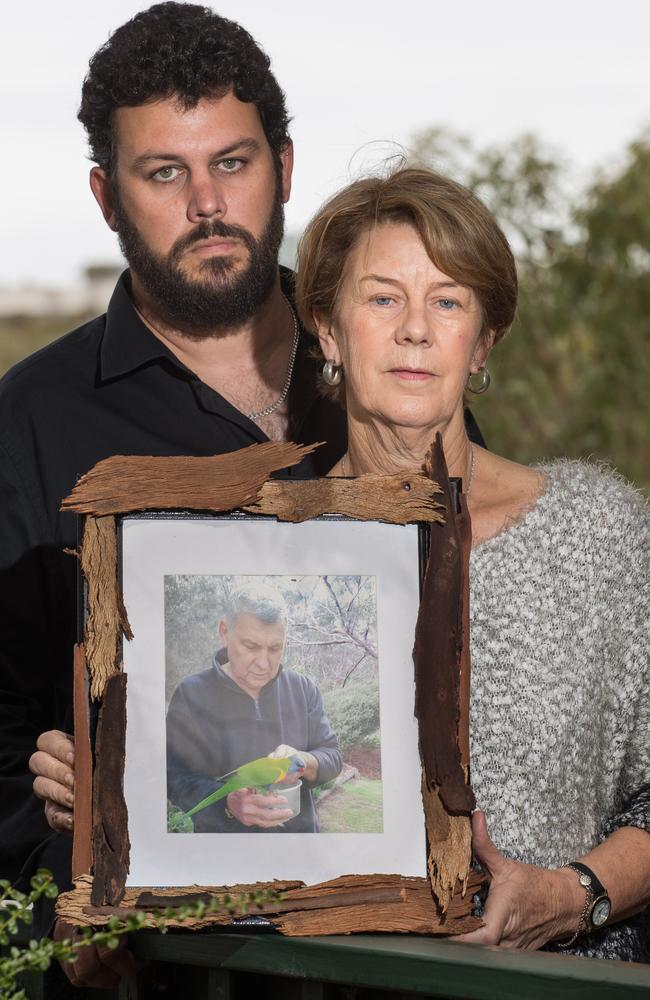
Stewart Johnston told of how his mother had been slapped in the face by a carer and thrown on and off a toilet. Rina Serpo told the heartbreaking story of how her husband Ermanno was “grabbed by the throat” and dragged down a corridor by a carer, and how he was so overmedicated he would eat with his eyes shut.
The horrific abuse uncovered by then-chief psychiatrist Dr Aaron Groves confirmed to Patrina Cole what she’d always felt in her gut, that the head wound suffered by her father Pietro De Cicco at Oakden was suspicious. She wrote to Coroner Mark Johns demanding he conduct an investigation into her father’s death.
Each of them are the true heroes of Oakden — all only able to tell their story because of Mrs Spriggs’ fight and drive.
But the battle that has brought about so much change and empowered so many others has taken its toll on Barb.
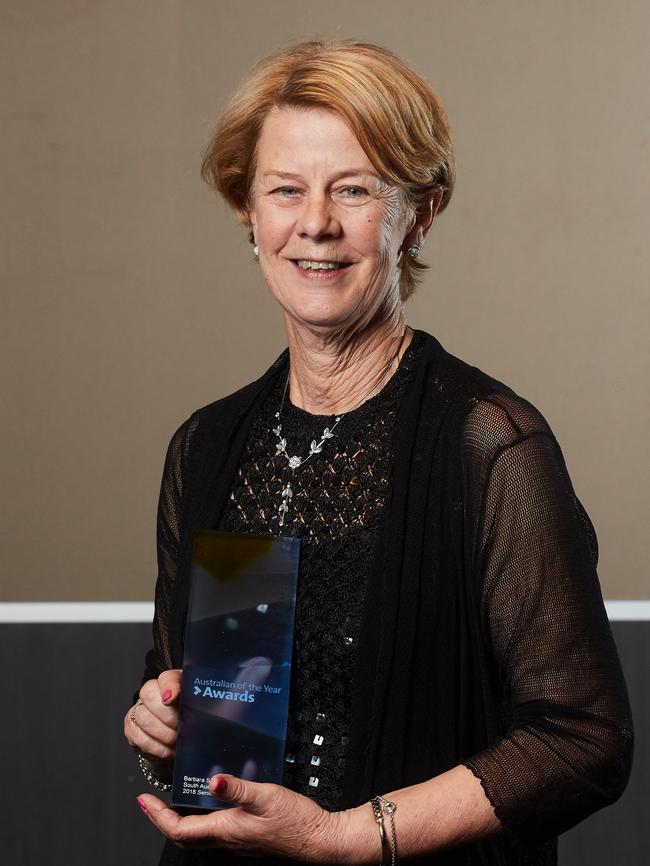
Clive says he had no choice but to pull the plug on his mother’s commitments as Senior South Australian of the Year, and to become the family’s spokesman on everything to do with the nursing home his mother helped to close.
Tears well in Clive’s eyes as he speaks of the pain and suffering unexpectedly thrust upon his mother. He says she started to struggle after returning from the national Australia Day awards early this year.
“It’s to the point where she just doesn’t want to talk about it, she needs time to move on. It’s made her quite unwell and just struggling to deal with life in general at the moment,” he says. “She’s just had to step away from it until … whether she picks it up later on or not I don’t know … but for her own health she’s just got to move away from it. It’s just become too much.
“She needs time to grieve the loss of her husband, which she hasn’t had time to do. In the midst of all this she lost her brother as well so she’s had a lot on her plate and it’s been hard for her, it really has.”
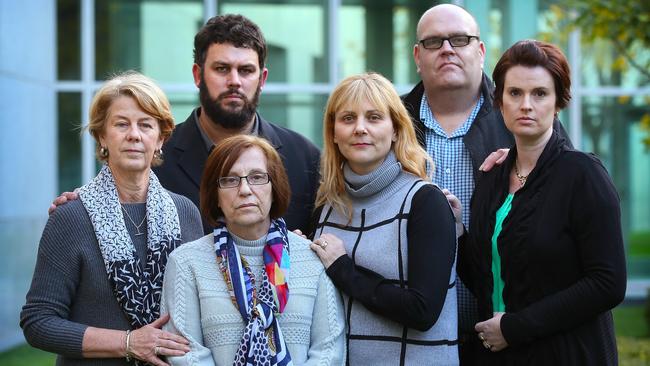
Barb has barely spoken publicly since the release of the ICAC report in late February.
Although emotionally wrecked, she’d felt compelled to face the media and hear from then-Premier Jay Weatherill about his response to what had been uncovered.
Clive stood beside his mother as grief overwhelmed her during a press conference with Nick Xenophon, where she was unable to string words together. It was after that press conference that he told his mum she had to look after herself, after six years of fighting for others.
“She had to (step away) for her health. It wasn’t an option. I think I was talking to her one day and I just said to her – that’s it, we cut everything off,” he says.
“No more, you can’t keep going on like this. You’re worrying too much about things, things are just getting too difficult for you and it’s causing you to be sick, it’s not healthy.
“She’s got to start looking after her health. And I think for what she’s done and what she’s achieved, it’s the least that can happen.”
There was a rare exception last month when federal Aged Care Minister Ken White announced a new Aged Care Quality and Safety Commission, to enforce higher standards of care and a one-stop-shop for reporting complaints.
That day Barb had been feeling better and, buoyed by the rare bit of good news, opted to speak to the media for the first time since the ICAC report came down. But it didn’t mean she was now well.
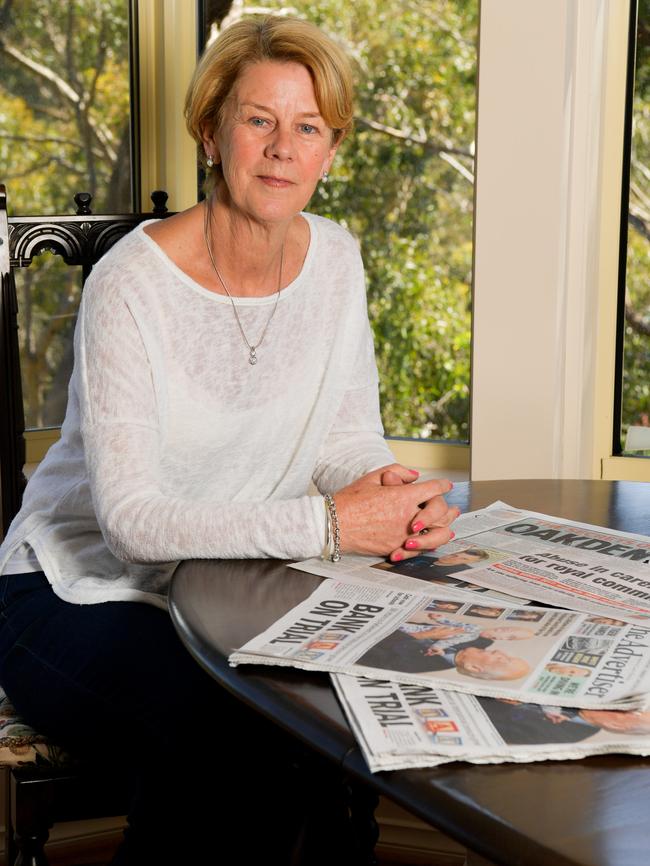
Despite the mental struggle, Clive says his Mum has “no regrets whatsoever” about becoming an accidental whistleblower in one of South Australia’s biggest scandals.
“I know Dad would be extremely proud of what she’s achieved. Like Mum said before, he would have done the same thing had it been the other way around,” he says.
“He wouldn’t have left anything unturned, he would have kept fighting exactly like Mum did. What she’s done is absolutely amazing … when it all started we did say this is going to open a can of worms but I never thought it would turn out like this.
“What it’s exposed and the changes it’s making, she’s extremely pleased and amazed what she’s done.
“So many people are so proud of what she’s done and achieved for this state, let alone this country, moving forward in aged care and mental health.”
Australia Day Council SA chairman Houssam Abiad says Barb was easily the standout candidate for Senior South Australian of the Year.
“It’s a very important issue and we’re proud to be able to highlight the people who play integral roles in championing these sorts of issues,” he says.
“At the end of the day she needs to make sure she’s OK and her family is OK. If she doesn’t do anything else this year, she’s already gone above and beyond in this role.”
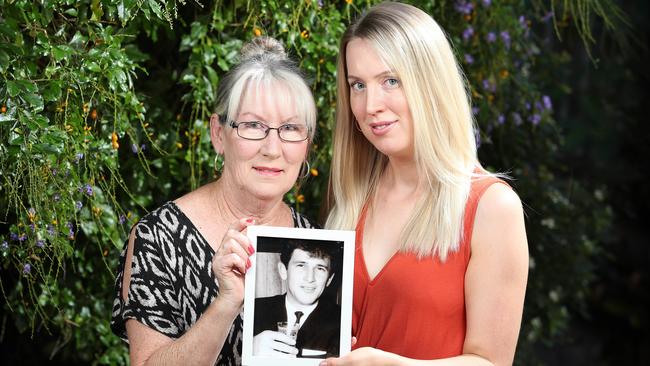
Lorraine Gum’s worry didn’t end when Groves’ report was released, or when Oakden was closed.
Instead, her husband Bob was transferred from Oakden – where he had lived for four and a half years – to a mental health ward at the Lyell McEwin Hospital in February 2017.
Speaking publicly for the first time, Lorraine says she was told he was there to be assessed, and would stay there for up to six weeks. But when Bob died eight months later, in October last year, he was still a patient at the Lyell McEwin.
Lorraine is convinced her husband was routinely overmedicated at both Oakden and the Lyell McEwin.
She says she was told by a Modbury Hospital staffer that her husband had been overmedicated when he was transferred there, practically unable to move. “He said that many nursing homes just use medication that they don’t need to and that was the case,” she says. “He went on the ward, they took him off everything and he bounced back.”
Their niece Jo Watson says Bob’s periods of steep deterioration could only be put down to the drugs he was on.
“At one point we were told, ‘this man is dying and you need to prepare yourself for it’, and she (Lorraine) knew deep down that it was the drugs,” Jo says. “Eventually, once he got taken off all the medication or it got dropped or changed, the man bounced back.
“The amount of times he was supposedly on death’s door and all of a sudden came out of his coma-like state was ludicrous. We can only put two and two together and say – hey, that has to be the drugs.”
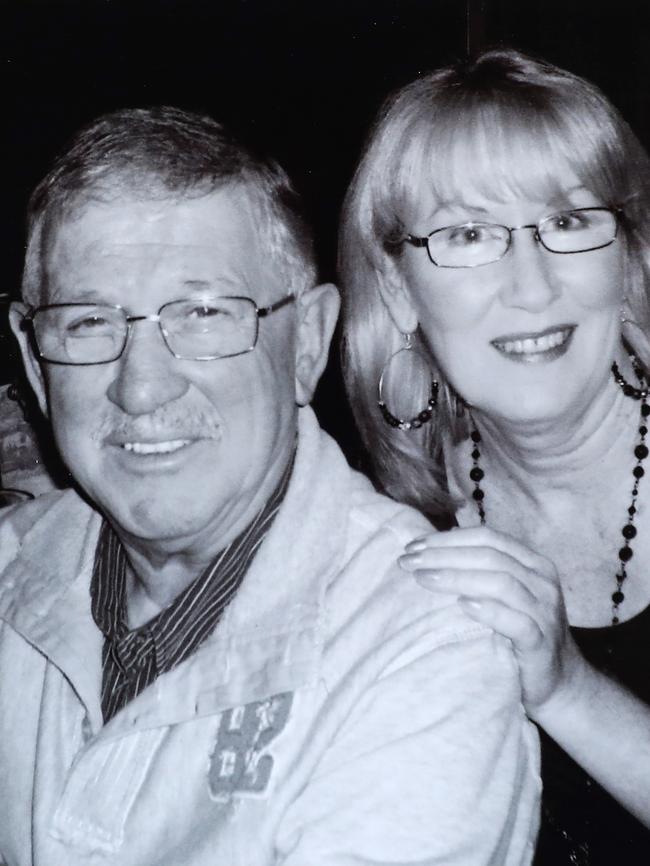
Bob hid his diagnosis from his family for almost two years before he called an ambulance and was transferred to the Lyell McEwin Hospital in 2012.
He was made to move to Oakden from the Lyell McEwin later that year, after the distressed patient lashed out at a staff member, with a court order giving the family no option.
Lorraine says some Oakden staffers were not equipped to handle people with severe behavioural issues, with her husband dosed up with medication to knock him out temporarily, for fear of him getting aggressive.
She says her husband weighed just 40kg when he died, and the medication suppressed most of his natural body functions.
“But every time they’d reduce the meds he was miraculously able to have a second wind, feed himself and walk,” she says. “They always used to say it was for his safety and everyone else’s safety, and that’s why he had to have this medication.”
A NAHLN spokeswoman said the service was in regular contact with Lorraine and took her concerns “extremely seriously”.
“We have initiated an independent review from a senior clinical expert, external to South Australia, and will make the findings of this review available to Lorraine as soon as possible,” the spokeswoman said.
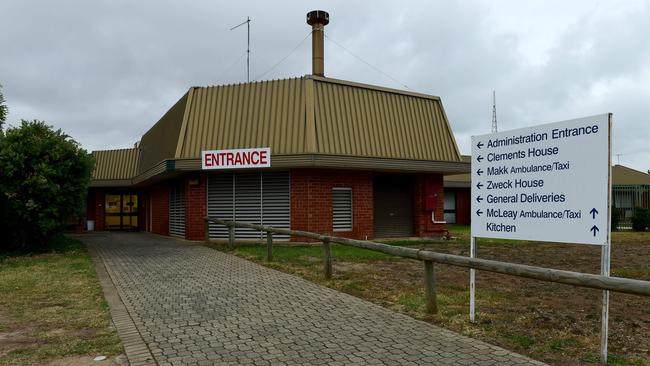
Lorraine highlighted an incident where she says a staff member was unduly rough with her husband in 2017. “One day I was there (at Oakden) ... Bob was in the corridor at Makk ward and I was going to take him out to the foyer,” she says. “We got a chair for him and he was pacing up and down, and the nurse got the chair and pushed it into his legs.
“I asked her ‘what did you do that for?’ and she said it was so he’d stop.”
The family feels most aggrieved about Bob’s final stint at the Lyell McEwin in 2017. They were told he must stay there because he was classified as a tier seven mental health patient, and the new Northgate facility was not accepting patients above tier six.
“They had him in a room that was isolated from the rest of the place. There was not a bloody thing in there. There were about three chairs, that was it,” she says.
Lorraine says her husband was never going to move to Northgate, despite promises from senior mental health staff.
“We were promised a room at Northgate and then they said he could only go there when he was in the next phase of his illness. I said ‘what, when he’s in a coffin?’” she says.
“We were so excited when we heard what they were going to do at Northgate, because Bob had left this home to spend the rest of his life at bloody Oakden.”
Lorraine says she was motivated to tell her story because she didn’t want others to go through what she and other Oakden families did. “He deserved better than the way his life ended and it shouldn’t have ended when it did either, because if you ask me the medication ended his life,” she says.
But her and Jo’s anger isn’t confined to Oakden or Lyell McEwin and what happened there. They want to see statewide reform in mental health care, both in hospitals and specialist facilities like Northgate.
“Throughout this whole mess I hope that’s what gets changed dramatically in this state,” Jo says. “Our mental health care for elderly patients is disgusting and it needs to be looked at.
“There’s likely a common thread through a number of nursing homes and mental health wards where there’s similar types of practices. The whole sector needs an overhaul and I hope that’s what comes out of this.”
Jo says she was in awe of how brave and persistent her aunt had been since Bob’s diagnosis. “This lady will underestimate and undersell herself the whole way through, but this has been a massive period of her life for five and a half years,” she says.
“It’s just not something someone should be put through. Dealing with your loved one having dementia is hard enough without everything else she had to endure as part of that.
“I know Lorraine probably wonders, as I do, were we a little bit complacent, should we have done more? Death is hard enough without adding massive layers of regret on top of that.”
Stewart Johnston got the political change he’d been campaigning for at the March state election.
It lasted just 15 seconds, but the Liberal Party commercial where Stewart told voters he’d had enough of Weatherill and his government was one of the election’s most memorable pieces of advertising.
Although other families he speaks alongside endorsed Xenophon’s SA Best, they were all united on one point; a new government committed to shaking up the state’s aged care sector would be a good thing.
While Stewart and other families are excited about Premier Steven Marshall’s fresh approach to the Oakden scandal and mental health care, they know there’s still a long way to go to get the reform they’re so determined to see.
Families are still fighting for the Coroner to investigate the deaths of their loved ones, hopeful that the government’s abuse investigations unit will see criminal charges laid.
Stewart says it was “unbelievable” not a single criminal charge had been laid against any former Oakden staff or agency workers given the nature of the abuse catalogued in the chief psychiatrist’s report and the ICAC report.
The families also want the Government to do all it can to release Cabinet documents requested by the Independent Commissioner Against Corruption.
Some have even made compensation claims that have yet to be formally responded to by the Government. And then there’s the systemic change families want to see: better training, more CCTV, the implementation of new funding models.
But Stewart says there’s genuine positivity among the families for the first time since Groves’ report was released 12 months ago.
“These last few weeks have been a game changer for us. We see the path clear to get the answers we require and to see systemic change so what occurred can never happen again,” he says.
Stewart says he and the families united by the torment of what occurred at Oakden have “an amazing bond through trauma”.
“We have a shared understanding and knowledge that lots of other people can’t get,” he says. “When one of us has been running out of gas we’ve been able to prop each other up. Through this whole period we’ve been so focused on collective power to see the change we want to happen.”


